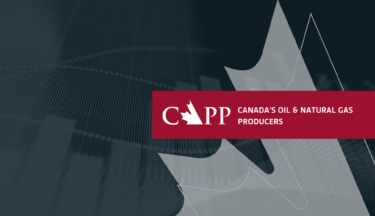
On this page you will find CAPP’s commentary on a number of important issues related to Canada’s energy industry.


Canada at a Cross Roads
Recapturing Canada's economic strength & place in the world: energy, investment & decarbonization

Opinion: Diversity and creativity in industry essential to Canada’s future
As leaders in Canada’s business community, we want to draw attention as International Women’s Day was celebrated on Friday.

It’s Time to Unleash Canada’s Energy Advantage
The greatest barrier to Canada seizing our energy advantage is today's uncompetitive and complex regulatory and policy environment

Podcast with Lisa Baiton: Canada’s Unique Energy Advantage
Lisa Baiton and Brian Crombie discuss Canada’s unique energy advantage – that if unleashed – can lower global emissions, enhance Canada’s geopolitical strength, and drive the economy in the decades ahead.

Unleashing Canada’s Greatest Competitive Advantage
Lisa Baiton - Speech to the Canadian Club of Toronto, ON, Canada

A golden opportunity: Investing in Canada’s liquefied natural gas export industry
Ahead of the international LNG2023 conference, it is Canada's chance to showcase our LNG export industry as the crucial opportunity it is.

On climate and energy security, the U.S. is out to win
The U.S. is providing the blueprint. Canada can either play catch up and win, or risk being left behind.

Greenwashing label discourages real solutions to the world’s energy crisis
The world is undergoing a historical shift at the scale of the industrial revolution, redefining global trading relationships and geopolitics. At the centre of this shift is energy. For Canada to thrive we need to achieve a pragmatic and careful balance that solves the trilemma of protecting the environment, ensuring we have energy security while creating economic benefits for all Canadians.

Canada has the potential to be a natural-gas powerhouse
The world knows this, and they are simply pleading with Canada to unlock its full potential

Global energy security should be a national imperative
Canada can become a major supplier of natural gas to allies and trading partners in Asia and Europe

Opinion: G7 allies can look to Canada as a significant answer to the world’s energy problems
As the Group of Seven leaders recently gathered in Germany for their summit meetings, climate change and energy security were on the table for discussion.
